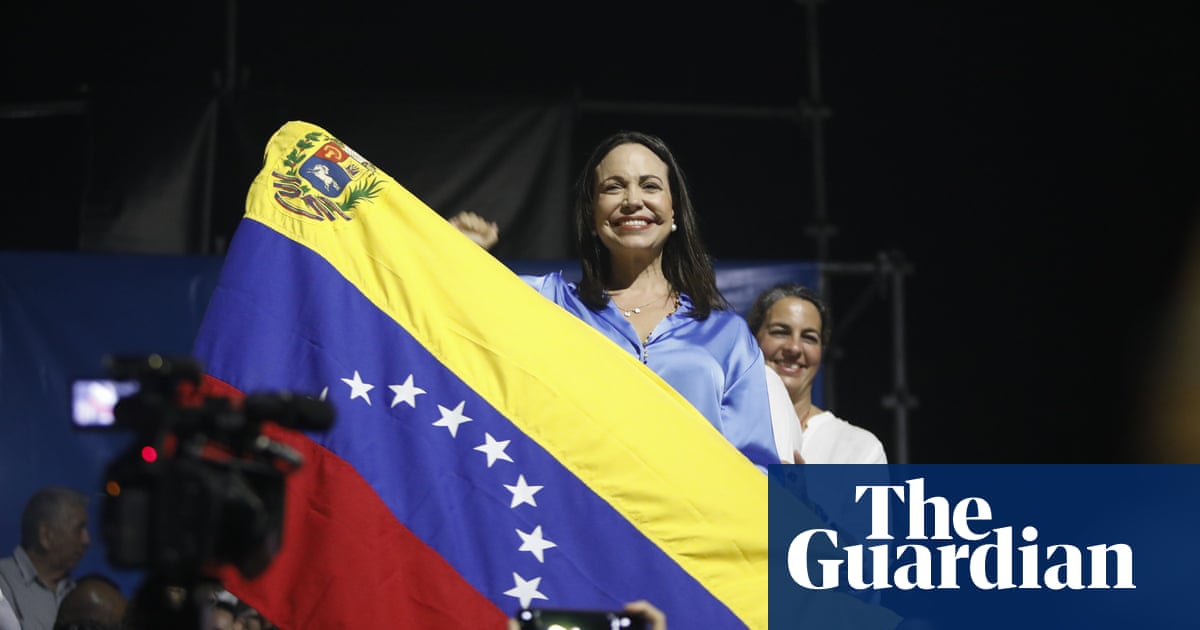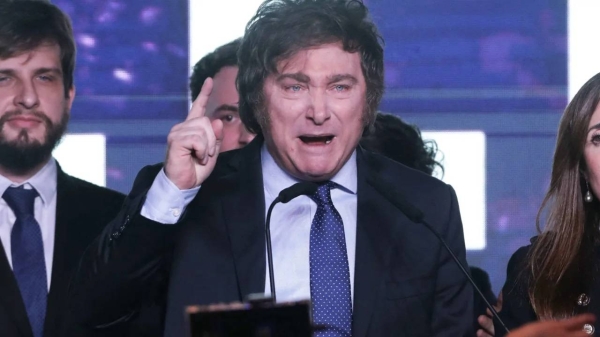
A little-known, far-right populist took the lead in Romania’s presidential election on Sunday, electoral data showed, and will probably face leftist prime minister Marcel Ciolacu in a runoff in two weeks, an outcome that has rocked the country’s political landscape.
Calin Georgescu, who ran independently, led the polls with about 22% of the vote after nearly 93% of votes were counted, while Ciolacu of the Social Democratic party, or PSD, trailed at 21%. Elena Lasconi of the Save Romania Union party, or USR, stood at about 18%, and George Simion, the leader of the far-right Alliance for the Unity of Romanians, or AUR, took about 14%.
After polls closed, 9.4 million people – about 52.4% of eligible voters – had cast ballots, according to the Central Election Bureau. The second round of the vote will be held on 8 December.
The president serves a five-year term and has significant decision-making powers in areas such as national security, foreign policy and judicial appointments in the European Union and Nato member country.
Georgescu, 62, ran independently and was not widely known. He outperformed most local surveys, sending shock waves through Romania’s political establishment as he ascended to pole position.
After casting his ballot on Sunday, Georgescu said in a post on Facebook that he voted “For the unjust, for the humiliated, for those who feel they do not matter and actually matter the most … the vote is a prayer for the nation.”
Cristian Andrei, a political consultant based in Bucharest, told The Associated Press that Georgescu’s unexpected poll performance appears to be a “large protest or revolt against the establishment.”
“The mainstream political parties have lost the connection with regular Romanians,” he said. “You don’t have strong candidates or strong leaders … there are weak candidates, weak leaders, and the parties in general are pretty much disconnected.
Georgescu lacks an agenda, Andrei said, and has a vague and populist manifesto with positions that are “beyond the normal discourse.” His stances include supporting Romanian farmers, reducing dependency on imports, and ramping up energy and food production.
Georgescu has called Nato’s ballistic missile defense shield in the Romanian town of Deveselu a “shame of diplomacy”. He has said the North Atlantic alliance will not protect any of its members should they be attacked by Russia.
According to his website, Georgescu holds a doctorate in pedology, a branch of soil science, and held different positions in Romania‘s environment ministry in the 1990s. Between 1999 and 2012, he was a representative for Romania on the national committee of the United Nations Environment Program.
Videos posted to his popular TikTok account, where he has amassed 1.6 million likes, depict him attending church, doing judo, running around an oval track, and speaking on podcasts.
Romania shares a 650-km (400-mile) border with Ukraine and since Russia attacked Kyiv in 2022, it has enabled the export of millions of tons of grain through its Black Sea port of Constanta and provided military aid, including the donation of a Patriot air defence battery.
Villages on the border with Ukraine have seen a barrage of drones breaching national airspace although no casualties have been reported.
One political commentator said Russian meddling to give Georgescu an edge could not be ruled out in the election.
“Based on Georgescu’s stance towards Ukraine and the discrepancy between opinion surveys and the actual result, we cannot rule (that) out,” said Sergiu Miscoiu, a political science professor at Babes-Bolyai University.
Ecaterina Nawadia, a 20-year-old architecture student, said she voted for the first time in a national election on Sunday and hoped young people turn out in high numbers.
“Since the (1989) revolution, we didn’t have a really good president,” she said. “I hope most of the people my age went to vote … because the leading candidate is not the best option.”
Romania will also hold parliamentary elections on 1 December that will determine the country’s next government and prime minister.
Andrei, the political consultant, said Romania’s large budget deficit, high inflation, and an economic slowdown could push more mainstream candidates to shift toward populist stances amid widespread dissatisfaction.
Ciolacu told the AP before the first-round vote that one of his biggest goals was “to convince Romanians that it is worth staying at home or returning” to Romania, which has a massive diaspora spread throughout EU countries.











